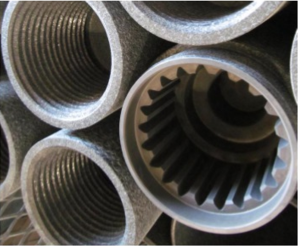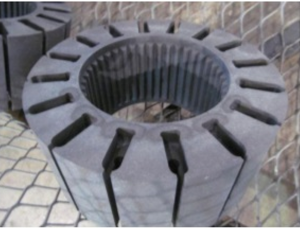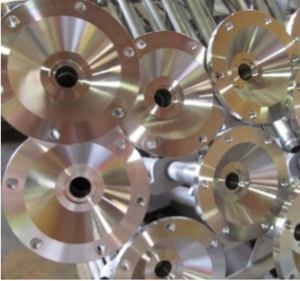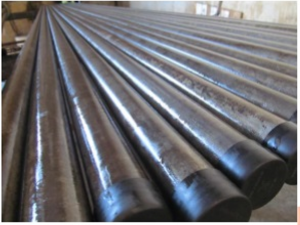Metal Pre-Treatment – Chemical Conversion Coatings
Pretreatment prepares the various substrates to better accept conversion coatings.
All products must be precleaned before pretreatment. Once upon immersion in the process solution, the surface molecules of the metal substrate undergo a chemical reaction; hence chemically and physically altering the surface.
Redi-Strip provides several metal pretreatments for a variety purposes:
Zinc Phosphating
Zinc Phosphating pretreatment provides superior corrosion resistance. improved wear and is routinely specified for preparing steel substrates for paint and coatings.
Automotive applications and equipment exposed to severe environments are examples of projects that commonly undergo this procedure.
Corrosion resistance is enhanced under paint but excellent when sealed with oil (i.e., Phosphate & Oil).
Manganese Phosphating – Parkerizing
Parkerizing, or Manganese Phosphating, produces chemical conversion coatings with the greatest degree of hardness (Mohs 5) and superior corrosion and wear resistances of the phosphate processes.
Coatings are thicker than those from zinc phosphating and the crystals are dark gray. Phosphate and Oil – Oiling with rust inhibited oils seals parkerized coatings.
The absorbed oil and porous crystalline structure work together to cushion and minimize metal-to-metal contact. The result is outstanding anti-galling lubricity and corrosion resistance.
Parkerizing is commonly used on gears, pinions, shafts, liners, firearms drilling rig collars, and other high wear, friction-bearing items made of ferrous metal or carbon steel.
Pickling and Passivation of Stainless
Steel Stainless steel is naturally corrosion resistant but surface rust spots can form at grain boundaries, embedded iron particles and other surface contaminants.
A passivating treatment is required to maximize the corrosion resistance of stainless steel and avoid premature failure.
Redi-Strip uses a carefully formulated passivating solution that pickles and passivates at the same time.
Upon immersion of precleaned metal in solution, the substrate is pickled clean of surface oxides, weld scale and heat tints; and the substrate is simultaneously passivated. Trace iron and other surface contaminants are removed, and a passive or less active layer of metal oxide forms. The passivated surface has superior corrosion resistance that protects the underlying substrate against corrosion.
Oiling
Oiling coats the entire surface of the metal with an oil film that provides long term protection against rust and corrosion (up to one year indoors, longer when wrapped or packaged). The mineral oil with rust inhibitors and antioxidants is also specially formulated to remove residual water from the substrate, thereby promoting rust protection.
Phosphate & Oil – Phosphated parts are oiled to provide superior corrosion resistance and optimize lubricity. The porous microcrystalline structure readily absorbes oil, sealing the coating.
Pickle & Oil – pipe for hydraulic service is oiled immediately after pickling to inhibit rusting.




